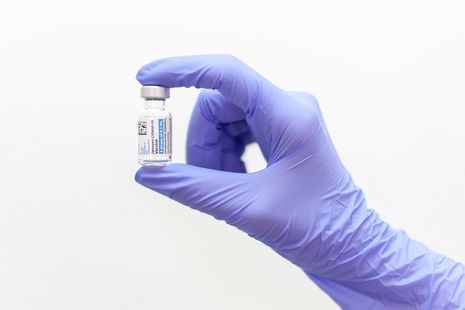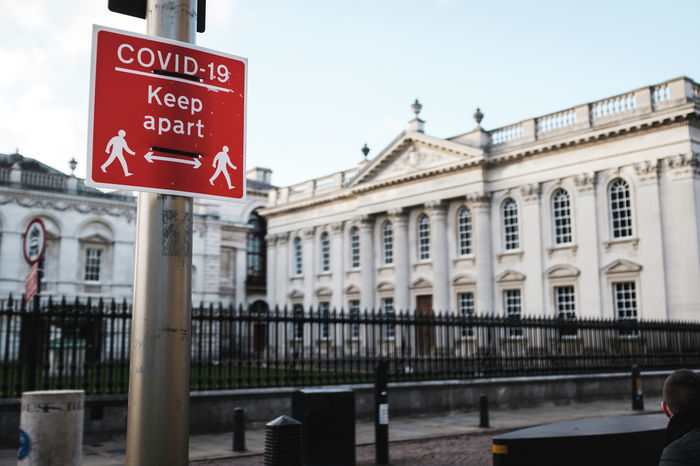The vaccination race: is privilege prevailing over principle?
Nora Redmond, Vice President of the Cambridge Oxfam Society, argues that vaccines must be offered to the global poor before children

Content note: this article contains detailed discussion of COVID-19 and death.
All sixteen and seventeen-year-olds have now been offered a coronavirus vaccine in England, and the rollout for twelve to fifteen-year-olds is beginning in September. Similar steps are being taken by several European countries including France, Italy and the Netherlands to start vaccinating children. As Western states use their excess jabs to protect a group which is of low priority, healthcare officials in low-income countries are dying due to major vaccine shortages. But not only is this refusal to share vaccine supplies a moral failing; it also goes against the interests of the countries doing the hoarding.
As of 28th August, 88% of people aged over sixteen in the United Kingdom have been given at least one vaccine. Followed by several European countries and the United States, England is starting to offer the vaccine to a group with an “extremely low” risk of developing serious or life-altering symptoms of COVID-19. Scientists from University College London have found that 1 in 500,000 children have died as a result of coronavirus, the majority of whom had underlying health conditions. While rollouts are being planned across Europe to vaccinate millions of young people, vaccination campaigns have been delayed in poorer nations where at-risk groups remain unprotected.
At present, less than 2% of the population of Africa has been vaccinated and both Burundi and Eritrea have not received any doses of the jab. This comes as countries throughout West Africa are experiencing catastrophic third waves of the infection, with rapid rises in the number of weekly deaths related to the virus confirmed in fifteen states in the continent. In a virtual news conference on 19th August, Dr Matshidiso Moeti, the World Health Organisation Africa Director, commented that richer countries which hoard vaccines “make a mockery of vaccine equity”. When high-risk citizens and healthcare workers across the Global South are likely to become severely ill or die from coronavirus in the coming months, Western states must consider the moral implications of their decision to dip into excess supplies of the jab.
"The pandemic is global, not national, which means an international approach must be taken."
The United States, Israel and Ireland all plan to start administering vaccine booster shots, despite scientists being “unclear” as to whether they are necessary for immunisation. The WHO has insisted that vulnerable people globally need to be given the vaccine before high-income nations offer their citizens an additional jab. Since the pandemic first hit, wealthy nations have been looking out for themselves – and themselves alone. A mere 14% of the worldwide population has bought over half of the world’s vaccines, with Canada purchasing enough doses to vaccinate each Canadian five times. What rich countries have not grasped is that by needlessly endangering countless citizens globally, they are also hurting themselves. Vaccine nationalism will do nothing in the long-run to tackle the virus. The pandemic is global, not national, which means an international approach must be taken.
One step taken to redistribute COVID-19 vaccines to low-income countries has been the introduction of the Covax scheme. Its goal was to deliver two billion vaccines to poorer nations by the end of 2021. Yet the programme has already displayed inadequacies. India, where the majority of Covax vaccines were set to be produced, stopped all exports to use the vaccines to combat the country’s own coronavirus crisis. Meanwhile, Germany fought against a patent waiver proposed for COVID-19 vaccines, meaning that most poorer countries are unable to produce doses domestically.
"It is undeniable that the solution to the “vaccine apartheid” is for priority to be given to low-income countries."
It is undeniable that the solution to the “vaccine apartheid” is for priority to be given to low-income countries. The People’s Vaccine campaign highlights that the only possible way to achieve global safety from the virus is to ensure that the vaccine is available to all. A vaccine which was largely funded by the public has become privatised and monopolised. One possible solution is to change the way it is created and produced. By lifting vaccination patents, intellectual property could be pooled, allowing for the increased production of jabs in poorer countries. This proposal has been resisted by Western states and pharmaceutical companies, which fear it would result in a loss of revenue.
Another solution would be mass exportations of the coronavirus vaccine from wealthy countries. That said, when children as young as twelve are receiving doses while booster shots are about to be administered, it seems that high-income nations are unwilling to relinquish their leftover vaccines to protect the vulnerable in the Global South.
The COVID-19 vaccine rollout has been characterised by Western selfishness. The hoarding of jabs by wealthy states has resulted in vaccine shortages worldwide. And ultimately, the absence of a fair, accessible and global approach to vaccinating the world’s citizens will only prolong this pandemic.
 News / Uni Scout and Guide Club affirms trans inclusion 12 December 2025
News / Uni Scout and Guide Club affirms trans inclusion 12 December 2025 News / Cambridge Vet School gets lifeline year to stay accredited28 November 2025
News / Cambridge Vet School gets lifeline year to stay accredited28 November 2025 News / Pembroke to convert listed office building into accom9 December 2025
News / Pembroke to convert listed office building into accom9 December 2025 Features / Searching for community in queer Cambridge10 December 2025
Features / Searching for community in queer Cambridge10 December 2025 News / Uni redundancy consultation ‘falls short of legal duties’, unions say6 December 2025
News / Uni redundancy consultation ‘falls short of legal duties’, unions say6 December 2025










